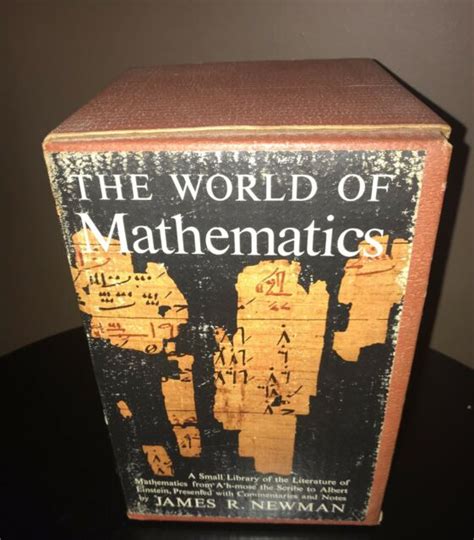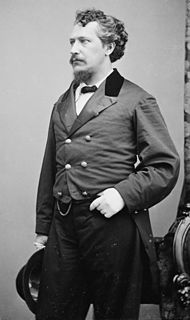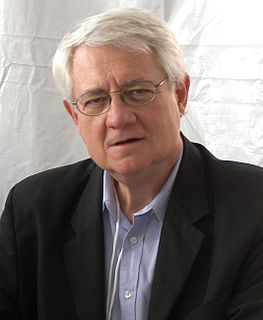A Quote by William Stanley Jevons
The conclusion to which I am ever more clearly coming is that the only hope of attaining a true system of economics is to fling aside,once and forever, the mazy and preposterous assumptions of the Ricardian school. Our English economists have been living in a fool's paradise. The truth is with the French school, and the sooner we recognize the fact, the better it will be for all the world, except perhaps the few writers who are far too committed to the old erroneous doctrines to allow for renunciation.
Quote Topics
All The World
Allow
Am
Aside
Assumptions
Been
Better
Clearly
Coming
Committed
Conclusion
Economics
Economists
English
Ever
Except
Fact
Far
Few
Fling
Fool
Forever
French
Hope
Living
More
Old
Once
Only
Our
Paradise
Perhaps
Recognize
Renunciation
School
Sooner
System
Too
True
Truth
Truth Is
Which
Will
World
Writers
Related Quotes
Mathematical economics is old enough to be respectable, but not all economists respect it. It has powerful supporters and impressive testimonials, yet many capable economists deny that mathematics, except as a shorthand or expository device, can be applied to economic reasoning. There have even been rumors that mathematics is used in economics (and in other social sciences) either for the deliberate purpose of mystification or to confer dignity upon common places as French was once used in diplomatic communications.
Economics, over the years, has become more and more abstract and divorced from events in the real world. Economists, by and large, do not study the workings of the actual economic system. They theorize about it. As Ely Devons, an English economist, once said in a meeting: 'If economists wanted to study the horse, they wouldn't go around and look at horses. They'd sit in their studies and say to themselves, `What would I do if I were a horse?' '
I mean, if we're concerned genuinely with writing, I think we probably get on with our work. I think this is very true of English writers, but perhaps not so true of French writers, who seem to read each other passionately, extensively, and endlessly, and who then talk about it to each other - which is splendid.
I went to law school which is a 3-year program in the US that is focused primarily on memorizing certain doctrines and taking exams that test whether you can apply those doctrines to help prepare for the bar exam. If you are lucky, you get a few classes where you are encouraged to think more critically and read critical texts rather than just casebooks, and perhaps write a paper that is not a legal memo or brief.
It isn't that some gay will get some rights. It's that everyone else in our state will lose rights. For instance, parents will lose the right to protect and direct the upbringing of their children. Because our K-12 public school system, of which ninety per cent of all youth are in the public school system, they will be required to learn that homosexuality is normal, equal and perhaps you should try it. And that will occur immediately, that all schools will begin teaching homosexuality.
Most of our competitor nations around the world have a national education system and America is the only major nation in the world that operates off of local school boards. They receive very little direction from state boards of education or from the nation. So local school boards direct basically what happens and too often they're not willing to track or to do the supervision of the education system that will make it world competitive.
The Chinese have certain advantages. The fact that it's a single party government. But I do believe in the long run the fact that India is a functioning democracy committed to the rule of law. Our system is slow to move but I'm confident that once decisions are taken they are going to be far more durable.
The realization that I came to is that each citizen for himself or herself understands the economics, which is, "I better make more than I spend and I better put something aside for a rainy day, and I want to get a good idea about what to do with the surplus so that perhaps it can grow while I'm sleeping." And that that's capitalism. Everybody practices it, but half of the country - those on the left - deny that it's true.
[on going to Sunday school:] It looks like rain, and I hope it will rain cats and dogs and hammers and pitchforks and silver sugar spoons and hay ricks and paper-covered novels and picture frames and rag carpets and toothpicks and skating rinks and birds of paradise and roof gardens and burdocks and French grammars before Sunday school time.
Economists operate with this image of the homo economicus, the rational economic agent, and while such agents are rare in the wider world, they are common in economics departments. Exemplifying the homo economicus paradigm, economists typically choose their research projects and hypotheses so as to promote their own careers, to maximize their lifetime income. This explains the astonishing pressures toward conformity in academic economics: how deviant views (except those by a few who have already achieved stardom) get crushed by an army of conformists.
Most people, including ourselves, live in a world of relative ignorance. We are even comfortable with that ignorance, because it is all we know. When we first start facing truth, the process may be frightening, and many people run back to their old lives. But if you continue to seek truth, you will eventually be able to handle it better. In fact, you want more! It's true that many people around you now may think you are weird or even a danger to society, but you don't care. Once you've tasted the truth, you won't ever want to go back to being ignorant





































